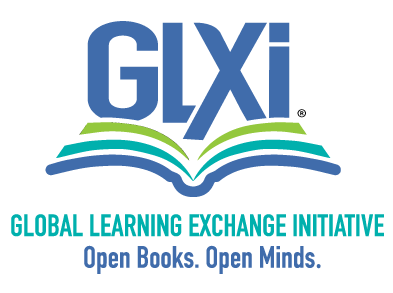GLXi Teacher Training Program Shows Strong Results in 2025 Evaluation
For the second year in a row, teachers trained through the Global Learning Exchange Initiative (GLXi)’s Open Books, Open Minds (OBOM) program participated in an evaluation to assess the program’s impact.
The evaluation, conducted entirely online in January 2025, involved all 286 active OBOM-trained teachers and focused on key classroom skills like conflict resolution, following instructions, and applying teaching processes.
Comparing New and Experienced Graduates
This year, GLXi compared the performance of two groups:
Teachers who graduated from OBOM in 2024
Teachers who graduated in previous years
This comparison offers valuable insight into the long-term impact of the training and highlights areas of growth and ongoing need.
Significant Improvements in 2025
The 2025 evaluation revealed major improvements, especially among the 2024 graduates. Key findings include:
81.9% of teachers reached a high-performance level — up from 65% in 2024.
Teachers demonstrated stronger skills in creating their own teaching strategies and adapting them to real classroom settings.
Classroom motivation and use of the “Learning Corner” significantly improved, thanks to updates in the 2024 training curriculum.
Curriculum Updates Driving Success
The OBOM curriculum was enhanced in 2024 with practical and contextual elements, such as:
Real-life case studies on classroom conflict resolution
Improved strategies for reading instruction
Expanded use of tools like the Learning Corner for Reading (a resource hub to support literacy development)
These changes were paired with the Open Minds in Action phase, which helps teachers put their learning into daily classroom practice. Teachers especially improved in guided reading, asking comprehension questions, explaining vocabulary, and encouraging student participation.
Culture of Feedback and Support
The evaluation not only measured teacher performance but also offered constructive feedback and ongoing guidance. This approach encouraged teachers to reflect on their practices and continuously improve.
Notably, 72% of teachers highlighted “freedom of expression” as one of the most valuable strategies they learned. In this context, freedom of expression means allowing students to write freely without immediate correction. This method has boosted student engagement, creativity, and critical thinking.
Areas Still Needing Improvement
Despite overall progress, three areas remain challenging for some teachers:
Tracking academic progress – 13.8% of teachers still scored in the medium or low range here, pointing to the need for better sequential planning.
Understanding learning recovery – Some teachers still struggle to support students who are falling behind, especially in classrooms with high absenteeism.
Reading assessment skills – Uncertainty remains around using assessment tools effectively, limiting accurate diagnoses of student needs.
These same areas were flagged in the 2024 evaluation, showing gradual improvement but ongoing need for focused training.
Why 2024 Graduates Excelled
Teachers who graduated in 2024 showed higher technical proficiency, thanks to updated and more hands-on training. Enhancements included:
Contextualized models for reading assessment
Workshops on personalized learning strategies
Practical guides for using the Learning Corner to track student progress
These updates were rolled out in the Open Minds in Action follow-up program, which all OBOM graduates eventually join. This shared platform allows GLXi to compare performance across cohorts and track the effectiveness of its evolving curriculum.
Continued Support Needed
The evaluation confirmed that GLXi’s teacher training is moving in the right direction. As newer graduates show greater technical skills, it's clear that the program’s improvements are working. At the same time, it’s essential to continue supporting more experienced teachers so that everyone benefits from updated best practices.
GLXi Executive Director Jaime Vielman summarized it best:
“It’s inspiring to see how committed our teachers are each year. They take the program seriously, and that commitment is reflected in the improved results.”
The next round of teacher evaluations will take place at the beginning of the 2026 school year.
You can help support the GLXi Open Books, Open Minds program. Donate to GLXi here.



